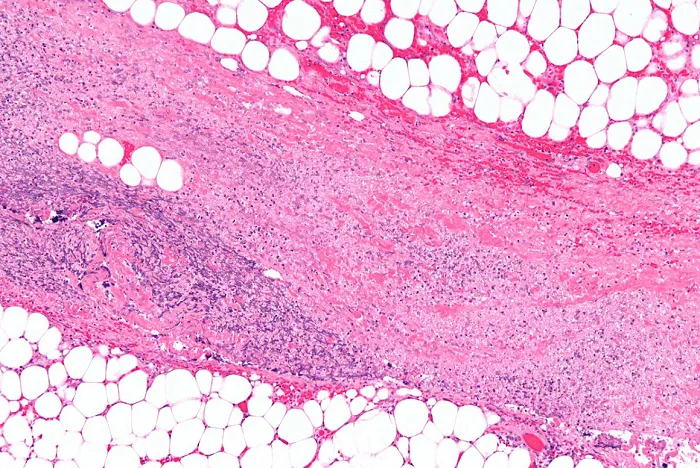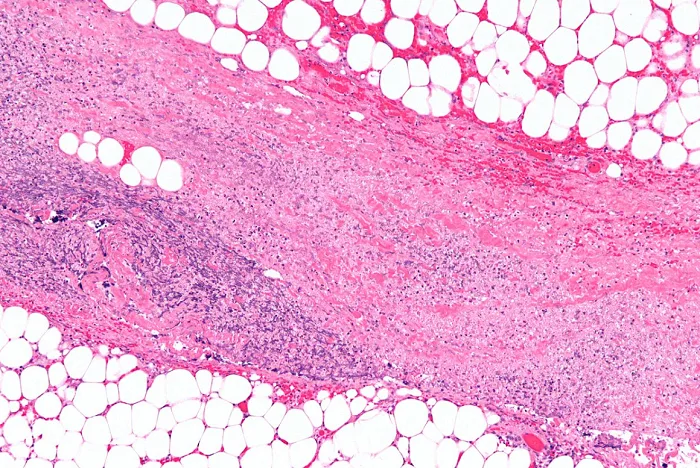
Two cases of flesh-eating disease confirmed in Florida
Health officials say infections are still rare.
Florida doctors in the Tampa Bay area are warning the public to be careful when swimming in local waters or eating uncooked seafood following two confirmed cases of flesh-eating disease.
Mike Walton contracted necrotizing fasciitis while fishing on Easter weekend. A GoFundMe page set up by his friends says he checked into the hospital within 24 hours and was informed the disease was spreading rapidly.
RELATED:
"Doctors remain uncertain if they can save his arm or make it as functional as before," the GoFundMe page reads.
Barry Briggs contracted the bacteria a few weeks earlier and nearly lost his foot, the Tampa Bay Times reports.
“We kayaked in some brackish water, and there were a lot of little black bugs,” Briggs said. “I remember getting bit on my foot, but I didn’t find any cuts. I was hours away from losing my foot. Something like this goes incredibly fast,” he told the publication.
VIDEO: FLESH-EATING BACTERIA IN NEW JERSEY WATERS COULD COST MAN HIS LIMBS
INFECTIONS STILL RARE
While flesh-eating infections are rare, officials say beach-goers and people near bodies of water should exercise caution.
Bacteria typically enters the body through a pre-existing cut or wound.

Micrograph of necrotizing fasciitis, showing necrosis (center of image) of the dense connective tissue, i.e. fascia, interposed between fat lobules (top-right and bottom-left of image) Photo/Caption: Wikipedia.
People with open wounds or compromised immune systems shouldn't swim in salt or brackish water, especially when flesh-eating bacteria has been confirmed in the area. On land, infections can occur from eating raw or undercooked seafood -- especially shellfish. If you discover a wound after spending time near water that is possibly infested, wash the area thoroughly with soap and warm tap water. If you develop flu-like symptoms shortly after visiting the beach, seek immediate medical care. The flesh-eating disease can become serious 12-24 hours post infection.










